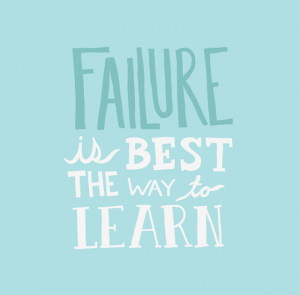Maureen Lang's Blog, page 11
October 1, 2012
Born In The Right Era?

Felt Manor, B&B in Galena, IL 1848
As a historical writer, I sometimes feel like I was born in the wrong era. How much more exciting would it have been to see all of the things I can only research these days? Streets lined with grand carriages, filled with people dressed to match. Imagine the fabrics! And of course one of the biggest employers in nearly any era before the industrial age was in the service industry—so most families had a maid or two. Ah, to live the elegant life of a Victorian lady residing over one of those gorgeous manor houses.
Until I remind myself that I would have likely been the maid in instead of the mistress, or lived in something between the manor house and the tenement house. Then, mainly because I’ve never trusted Hollywood to accurately portray history, I can guess how odorous those years must have been, how plagued by sickness and death. I recently read through some of the old family records my oldest sister has been collecting of our family history and time after time it read something like: John and Mary had seven children, three of whom survived childhood. Or how about this entry: Father was a painter who fell off a roof along with his tools; was in excruciating pain for six months, then died.
Elegant era? I don’t think so.
The other day my husband was reading about Preston Tucker, an article that ended by saying he’d been born a generation too late. Evidently Tucker loved automobiles; he learned to drive when he was only eleven years old. As an adult, after working on the police force (mainly so he could drive fast), he got a job selling cars—and with his outgoing personality and charm, he was successful. His real dream, though, was to design and build his own car. But one challenge after another, both legal and with car designs themselves, proved too much in an era where plenty of car choices already existed. His auto ideas may have been great—but his innovations weren’t enough to compete with what was already out there. Had he been born a generation earlier, among the likes of Ford and Nash and others in early automobile history, he’d probably have had a great future. As it was, he made only a few dozen cars then his production ended due to scandal, lawsuits and oh yeah, lack of a factory. Was he was born too late to have his dream pay off?
Somehow I think we’re all born into the era we were meant for. I don’t know much more about the man who wanted to design cars, but I think the personality he had for sales would probably have fit into nearly any era. Certainly he made a mark or there wouldn’t have been a newspaper article written about him (although, sadly, I no longer have the article and can’t recall his name!). His car journey might have been more like Nash than Ford anyway, even had he been born a generation earlier. Who knows? Plus he might not have lived long enough to see air conditioning in those cars, and that was worth waiting for!
September 24, 2012
Are Your Motives Intrinsic or Extrinsic?

Image Source
Over the weekend my husband had to drive back and forth between Chicago and Detroit—a long trip made tolerable by books on tape. One of the books he listened to was Drive, titled appropriately enough for a road trip, which talked about what drives us to do what we do.
Now since I neither read the book nor listened to it on tape, I’m filtering this through the discussion my husband and I had about what impressed him most. Hopefully I’m doing the author and his topic justice. Basically my husband explained the difference between whether we’re motivated by love of what we do (intrinsic to our passion and nature) or if we’re motivated by the results we receive when we do what we do (extrinsic elements, i.e. money, a paycheck, acceptance, even fame).
I daresay most people believe artists are usually motivated by intrinsic values. We can’t help but write or paint or create, because we have characters or images or inventions swirling around in our head and they need an outlet. But over the years I’ve met a fair number of successful writers who are smart enough to write because they’ve learned how to do it, and enjoy the freedom, the title, and the money (even if it isn’t as much as people believe it to be).
It’s also possible to start out with intrinsic motivation, writing for the pure passion of it, but end up with more extrinsic values driving us. That’s when writing becomes a job: after the passion has cooled, but there are still publishers willing to publish you, readers waiting for another book. Another check waiting to be cashed.
Yikes! Writing, a job? Doesn’t that sound like a corruption of something holy? I admit there are areas of writing that unavoidably require job-like effort, such as anything related to the business end, including marketing. But the longer our writing remains sacrosanct, the longer the quality will remain the best we can produce. I know, I know, there are people out there brilliant enough to produce great art just because of their brilliance. But I maintain that coupling talent with passion produces the best result. A writer might enjoy the freedom writing allows, but if a writer writes because they can’t wait to get the story down, then the whole process from the creation to the reader’s experience is usually more enjoyable.
I don’t think either motivation is wrong; perhaps one is easier than the other, for various reasons. Are you motivated by an intrinsic or extrinsic drive?
September 17, 2012
Failure As A Road To Success

Image Source Page: http://www.smallbiztechnology.com/arc...
I came across a link recently that offers a list of people who experienced what seems more than their fair share of rejection—before finally finding success. This is always such an interesting facet of life to me. What is it that keeps some people going, and others not? Why is that line so variable, that line between persevering and giving up? It seems a long way to go for some to reach that line, while some may face it before others even notice they were headed that way.
I suppose our degree of doggedness depends on all kinds of things: everything from what’s in our DNA to the way we were raised and the people we keep around us. Some people have more energy and tolerance (as in pain tolerance!) while others must exert more effort for a satisfactory result. Some need more of a support system while others seem capable of persevering on their own power.
One thing I do know: to succeed at anything that’s hard, it takes focus. Nearly always thinking about what we want, working to improve, giving up other things in favor of this thing we want. That seems to be pretty universal to achieve something that isn’t just handed to us.
So this is a short post this week, mainly because as I’m writing this my head is under attack from a cold. It’s that time of year again, when the kids get together at school to exchange a plethora of germs and then bring them back to new homes.
Excuse me now while I go find a tissue…
One last thought as I leave you . . . have you defined where your own line for giving up is? Are you satisfied with where it is? Is it possible to change where the line is—pushing it out farther, or maybe to know when it’s time to bring it in? I love questions with no right or wrong answer.
September 10, 2012
When Is Junk Not Junk?
 This is a question that can be asked about everything from garage sale items to what clutters my closet . . . but most recently, it’s been asked about human DNA.
This is a question that can be asked about everything from garage sale items to what clutters my closet . . . but most recently, it’s been asked about human DNA.
Don’t hurry off, I’m not going to go to explore the human genome, much as people like my husband would welcome such research. As I’ve mentioned before, my mind just isn’t that scientific. However, last week my husband read an article in the newspaper about how researchers have discovered that much of our “junk” DNA isn’t really junk. In fact, the more they’re learning about this stuff, the more they’re discovering how vital it is.
The reason this stood out for us in particular is the familiar language used in the article: words like “proteins” and “switches” and “mutations.” Those are the kinds of words we’ve been hearing for years from those pursuing a treatment for our Fragile X son—about how there are millions of codes written on this junk that actually control how cells, organs and other tissue in our bodies behave.
This “junk” may explain lots of things—how we look, how tall we are, and how the body reacts to disease. Let’s say identical twins are born but only one of them gets cancer. Why only one? It’s because of this junk DNA, and how small changes in the environment might affect these switches they’re uncovering that permeate this non-gene matter.
In my son’s case, his brain doesn’t produce a single protein that’s required for learning. It’s because a switch in his DNA is turned off. Doesn’t it sound simple to just go in an turn it on? If only it were so easy! But at least researchers know what they have to do, and that seems to be an important part of the puzzle. Enough to boost our hope for a cure in our son’s lifetime.
The other topic this article raised is obvious: God is revealing Himself yet again to be our Creator. Up until lately, evolutionists believed all that junk DNA was the natural result of genetic leftovers. Um, maybe not. Maybe it’s a far more complex part of us that only the most wondrous God could have designed.
Unfortunately this article once again reinforces a claim my husband makes regarding much of what I consider junk in his workshop downstairs and our garage and the attic above it. He says all that scrap and leftover material will fulfill some essential function in a yet to be fabricated system. How does he know this? He doesn’t, but having just used some old pieces of wood inherited when my father passed 5 years ago to reinforce my son’s train, he makes a good case for keeping quality items.
So consider keeping some of the quality items around you and see what blessings they bring to your life, just like all that “junk” DNA.
PS It was my husband who added that last part about keeping the clutter in his garage and workshop . . .
September 3, 2012
Love It: Launch It or Leave It
 Over the weekend my husband was reading a book about engineering design. It’s amazing the two of us are so compatible because I was busy reading a wonderful new book to endorse for a friend of mine which is yet to release, by Ruth Axtell. While hubby learned about the best ways to design a workable project (yawn!), I was lost in a book filled with intrigue between the British, French Royalists and those still loyal to Bonaparte. Remarkably enough, both of us were satisfied with our reading choices.
Over the weekend my husband was reading a book about engineering design. It’s amazing the two of us are so compatible because I was busy reading a wonderful new book to endorse for a friend of mine which is yet to release, by Ruth Axtell. While hubby learned about the best ways to design a workable project (yawn!), I was lost in a book filled with intrigue between the British, French Royalists and those still loyal to Bonaparte. Remarkably enough, both of us were satisfied with our reading choices.
But perhaps more remarkably than that, (if you haven’t already guessed) it’s often my husband who comes up with the most interesting topics for me to blog about. This was no exception. One of the subtitles in his book went something like this: Don’t Marry Your First Design Idea. The advice struck me as something that could reach across the creativity spectrum.
Here’s why. As a writer, I’m probably not alone in the nocturnal brilliance deception. That’s when I wake up from an inspirational dream that even after waking can be taken a bit farther, perhaps expanded into an entire plot line. I might even write it down with the night light (my reading light) or a lighted pen and paper I keep handy for just such occasions. I settle back to sleep thinking of how fun the new story line will be to explore.
Until I wake up and under the light of day my midnight mastery of storytelling doesn’t seem so masterful.
Many stories start out that way, whether from night- or day-dreaming. They begin with such promise, until little things like motivation or story structure get in the way. Sometimes that’s half the fun, working out those details until the entire story clicks into place, as if just waiting to be discovered. But it doesn’t always work out, no matter how hard I’ve tried.
I gave up on one story because it required too much time spent on the characters’ childhoods. It wasn’t exactly a coming-of-age story; it was, like so many other ideas I’ve had, a romance. But their childhoods were so important to the story that it took too long to get them to an age of interest for a grownup audience. Since I don’t write sagas, I abandoned it—at least for now.
Another idea I wanted to explore was a suspense novel, believe it or not. I don’t actually read suspense novels, so this was probably a bad idea to begin with. But there is a local legend about a business owner who is more than a little reluctant to sell off his property, despite the homes and more family-friendly community buildings springing up around him. Rumors of what might be buried at the back of his property spurred more than a couple of plot lines for me. But since I’d have to totally redefine my brand, it seemed best to abandon that initial design. (At least for now!)
What I’m saying is that sometimes even our really good ideas, ones we initially love, can certainly be launched—but sometimes they’re better off left behind in the creativity graveyard. Some great ideas turn out to be workable once they’re changed, altered, or tweaked if we’re going to produce the best possible product. But if we cling too stubbornly to every initial inspiration, we might lose out on other or better opportunities.
Something to think about as we plunge into a new season of work!
PS Perhaps some of you might connect the title of this blog to one of my new favorites shows (though it’s not very new). It’s called Love It Or List It, on HGTV, about a home designer and realtor who work with a family whose home is no longer working for them. Will the designer be able to remodel/redesign the house to suit their needs and make them fall in love with their house again, or will the realtor find a new place they can love and live in—within their budget? In the end, will they love their newly redone/redecorated house, or will they list it in favor of a new place?
August 27, 2012
The Cost of Writing?
 I’ve often said there are at many types of writers, and I don’t mean types of work writers produce. I mean there are many reasons a person may choose to be a writer. Here are a few:
I’ve often said there are at many types of writers, and I don’t mean types of work writers produce. I mean there are many reasons a person may choose to be a writer. Here are a few:
The crusader. Something has happened to this writer that profoundly touches or even alters their life, and they want to explore and share this discovery with others through the written word. They may think they have only one book in them, the one that launched their crusade. But then they find writing to be so satisfying they may go on to write many other books, even if their crusade book never gets published.
The Teacher. This writer is closely related to the Crusader, in that he or she feels the need to share what they’ve learned in life with as large an audience as possible.
The Prover. This writer decides they can surely write a better book than the one they just finished, so they decide to prove it. Oh, and make a lot of money in the end.
The Artist. Some might call this kind of writer a Purist, because they write for the pure love of writing. Most likely they discovered their love for writing at a very young age. They’re happiest when they’re writing and in fact they can’t not write.
This month my book club read a book about an artist: My Name Is Asher Lev by Chaim Potok. It’s a compelling book, and I say that not because I came away feeling refreshed or uplifted, because I didn’t. It wasn’t a happy book—but then, as the book itself claims, the world isn’t a pretty place. I may not totally agree with that, and because of that mindset my favorite books to both read and write are like the pretty flower pictures the artist character in this book cannot limit himself to creating.
But what I really found compelling in the book was the question of how far an artist could—or should—allow his art to take him. How much would I be willing to sacrifice in order to write? How focused can a person allow himself to be when it comes to his art?
For some, their art must share a spot with making a more profitable living, or at least a living wage. The term starving artist evolved for a reason, after all. For me, it’s impossible to be as devoted to my art as someone without a family, and in particular a family with a special needs child. My art has been more of an escape for me, a place I can go that I can control—at least so far as my characters allow that sort of thing.
But if circumstances were different, if I didn’t have a family or a special needs child, and if, without this family I had no financial worries (i.e. without a husband who takes care of me) would I be the kind of artist who served that art above all things, the way the character Asher Lev did? Would I be compelled to share whatever I had to say, whether or not it offended others, made me question my faith, in fact hurt people I loved and even myself?
I know there are many ways to offend others, and I can’t say my writing—or my life—won’t offend someone somewhere along the way. But for the most part, I’d say my faith and my art profoundly mesh. My values, serving my family, also mesh. Reading a book where the character must make a choice—either his art or his family and the community that goes with it—made me very grateful I don’t have to make such a choice. My decision to serve my family instead of my art, when necessary, is an easy one even as it might bring its own frustrations. But if it were an either/or decision? Oh, my, that would be much harder.
Something to think about, anyway . . . how much would you be willing to sacrifice in order to serve that part of you that you find most fulfilling? How would you do it and at the same time balance selflessness with selfishness?
See what reading a good book can do? That, to me, is the mark of a successful book. One that made me think.  For my complete review of Chaim Potok’s My Name Is Asher Lev, click here.
For my complete review of Chaim Potok’s My Name Is Asher Lev, click here.
August 20, 2012
Don’t Throw Out The Message Because of the Methods
 Have you ever heard the saying that Christianity would be a lot more appealing if it weren’t for Christians? Have you ever spoken to someone who likes the basic themes in Christianity, but when it comes to church—forget it? It’s like someone automatically connecting Christianity to rules, shame and judgment instead of love, grace, freedom and hope.
Have you ever heard the saying that Christianity would be a lot more appealing if it weren’t for Christians? Have you ever spoken to someone who likes the basic themes in Christianity, but when it comes to church—forget it? It’s like someone automatically connecting Christianity to rules, shame and judgment instead of love, grace, freedom and hope.
Statistics say that a clear majority of people in America believe in God. One poll I read suggested that number to be anywhere between 85 and 92 percent. No wonder the rest of the world thinks of us as being a far more faithful nation than we see ourselves!
But other polls suggest there are fewer people than ever going to church. Gallup pollsters once reported only 40% of Americans attend church every Sunday, but as far back as 2006 that number was questioned by at least one group from an Episcopal study at Samford, indicating only about 20% actually attend.
So have people rejected the methods of Christianity, even if they still hold to the basic belief that God exists? Why are so many content just to believe in a Creator, without getting to know Him better?
What I do know is that somehow the methods we’re using to help others know God doesn’t seem to be as effective as they could be. I’m afraid I don’t have the answers, but I do know one place we can pray about it. A friend of mine, fellow author Vicki Hinz, has set up a brand new site called Pray It Forward, where we can offer prayers for our country. It’s not political, it’s simply a spot for those of us concerned about the future of America to go and say a prayer and make a stand in the name of our faith.
One other thing that seems obvious: we need to check our own methods the next time we want to share a message! The world was changed by one man: Christ. Other individuals have impacted the world, too, like the Apostle Paul and Martin Luther and in science individuals changed history by understanding our environment, like Newton and Einstein.
We don’t have to be Billy Graham to change our own little worlds, all we need to do is make sure those around us don’t throw out our message because of our methods.
August 13, 2012
Two WONDERful tidbits
One of the first thoughts to enter my mind when my interest is piqued by historical tidbits is whether or not the tidbit would enhance the setting of a historical novel. I’ve created entire plot lines from a single interesting find. Whisper On The Wind, for example, came about after I read a single line referring to a secret newspaper printed and distributed by Belgians when they were under German occupation in the First World War. After that I dove into research and the book was born.
Over the weekend I was reading about Unesco’s 40th list of World Wonders, celebrating ten lesser known wonders of nature and culture. Two of them stood out to me as something that would add a bit of authenticity and flavor to a European set novel.
 One is an 18th century tradition from Spain, where Catalan festivals often include castell building—otherwise known as human towers. A mix of engineering talents, strength, balance, common sense—not to mention bravery—are necessary for everyone involved. It’s turned into a competition in our day, with teams wearing white pants and similarly colored shirts, but evidently the best castells are those allowing orderly assembly and disassembly after the person at the top salutes the crowd below with four fingers thought to symbolize the Catalan flag. (This person at the top is known as the enxaneta or “rider” – usually someone small, like a child. The article quotes someone who participated in a human tower as saying the descent is just as hard as the ascent. Hmmm…. having gotten on the roof of my home to assist my husband while he painted a particularly rough spot to reach, I think descents are harder than ascents. This year my high school son assisted while I was away—something I’m very grateful I was told about only after it happened. But I digress . . .)
One is an 18th century tradition from Spain, where Catalan festivals often include castell building—otherwise known as human towers. A mix of engineering talents, strength, balance, common sense—not to mention bravery—are necessary for everyone involved. It’s turned into a competition in our day, with teams wearing white pants and similarly colored shirts, but evidently the best castells are those allowing orderly assembly and disassembly after the person at the top salutes the crowd below with four fingers thought to symbolize the Catalan flag. (This person at the top is known as the enxaneta or “rider” – usually someone small, like a child. The article quotes someone who participated in a human tower as saying the descent is just as hard as the ascent. Hmmm…. having gotten on the roof of my home to assist my husband while he painted a particularly rough spot to reach, I think descents are harder than ascents. This year my high school son assisted while I was away—something I’m very grateful I was told about only after it happened. But I digress . . .)
Another site from this year’s list that looked fascinating is a train line running through the Swiss Alps. The Rhaetian Railway’s Albula launched in 1904 and the Bernina in 1910, and both lines have been running ever since. 196 viaducts and 55 tunnels through some of the most scenic terrain on earth! Someday, I’m going to do this—at least vicariously, through the eyes of a few characters yet to be developed.
These are only two, with countless more in mind and even more yet to be discovered! This is part of the reason writing is without a doubt one of the best “jobs” anyone can have.
So I’m starting this week the way I should, by counting my blessings.
August 7, 2012
Time and the Glamour of Science
 I’m blessed to have the kind of job that doesn’t often demand time constraints. Yes, I have deadlines, but my publisher and I are able to schedule them generously. I do have this once-per-week blog deadline and twice a month I post on another blog (Christians Read) which are regular but manageable deadlines. And of course I have all of the other household time management details: pay the bills, deliver my sons on time to various programs, doctor or dentist appointments, etc. And soon, I’ll be making sure they get on the bus on time. (Can you see me doing the happy dance about that?)
I’m blessed to have the kind of job that doesn’t often demand time constraints. Yes, I have deadlines, but my publisher and I are able to schedule them generously. I do have this once-per-week blog deadline and twice a month I post on another blog (Christians Read) which are regular but manageable deadlines. And of course I have all of the other household time management details: pay the bills, deliver my sons on time to various programs, doctor or dentist appointments, etc. And soon, I’ll be making sure they get on the bus on time. (Can you see me doing the happy dance about that?)
I may not be the absolute best candidate to talk about time, but it’s been on my mind lately. Had I been able to access my blog yesterday (a mix of limited time and technical problems with this site) I would have spoken about the 7 minutes of terror experienced by the Nasa team during the time they waited to be back in contact with Curiosity during its landing phase. It was a necessary lapse of contact, an expected one. But even though they’d tested everything they could test in advance, they couldn’t do an advance simulation because they couldn’t exactly replicate the Mars atmosphere Curiosity needed to penetrate. Would all of their hard work pay off? Or would any number of things go wrong? It all came down to those seven minutes—if they could reestablish contact after a successful landing. If it was successful at all.
I’m sure by now you’ve heard that the landing was a complete success, and they’ve already received some pictures of Mars’ surface—with many more pictures to come, even video, and in far better detail once things really get rolling. (Literally, since Curiosity is mobile.)
My husband and I were talking about those seven minutes, and how hard it must have been for the scientists to get through them. All the designing, the study, the rigorous thinking and planning demanded to put together such an ambitious project surely had them more than a little emotionally invested. Not to mention that the entire world watched.
I tried comparing it to writing a book, but somehow it wasn’t quite as dramatic. For one thing, the obvious expense and variety of work and endless planning at Nasa is awe-inspiring. I do take months to write a book, spend a lot of time with research and planning, and it is a team sport because my wonderful editors, cover designers, marketers all cheer for the same things I do. And at the end of the process we have no idea how a book will sell or be received. But waiting for that reception simply cannot be boiled down to that 7 minutes of terror those scientists must have felt while waiting to reconnect to their “baby,” Curiosity.
So anyone who thinks being an author is more glamorous than being an engineer is obviously mistaken. Curiosity has just proven that.
July 30, 2012
The Art of Persuasion Through Storytelling
 This weekend my husband was reminded of my family’s long-held tradition of holding a “healthy discussion.” Although I actually wasn’t there (I had a speaking engagement at the Church and Synagogue Library Association), I could well imagine how his time with my family went. While toting boxes and lifting heavy furniture during a nephew’s move, my brothers inevitably got into a loud discussion about the gloomy state of the world and its politics. Even while no one disagreed, they somehow managed to raise their unified voices regarding the mistakes of those running our country. And when they disagree? My goodness, the tone goes up and the word speed multiplies until we can’t even hear ourselves.
This weekend my husband was reminded of my family’s long-held tradition of holding a “healthy discussion.” Although I actually wasn’t there (I had a speaking engagement at the Church and Synagogue Library Association), I could well imagine how his time with my family went. While toting boxes and lifting heavy furniture during a nephew’s move, my brothers inevitably got into a loud discussion about the gloomy state of the world and its politics. Even while no one disagreed, they somehow managed to raise their unified voices regarding the mistakes of those running our country. And when they disagree? My goodness, the tone goes up and the word speed multiplies until we can’t even hear ourselves.
The major problem with high decibel “discussions” is that neither side really listens to the other. My husband, not having been raised in a family like mine, later offered one bit of advice to my Republican-minded siblings: If the Republicans want to win, they need a better story.
I bring this up as an example, even at the risk of getting too political here on my blog, though I’m an admitted conservative. In this country, the Democrats claim a corner on the market of compassion. Compassion is something that appeals to almost any reasonable person, including myself. For the most part, I believe many Democrats are sincere in their hope to help those who can’t help themselves.
It’s how to help that the disagreements begin.
The Republicans, on the other hand, are seen as the ones who only care about the rich—despite the facts showing Republicans are more generous than Democrats when it comes to charitable giving. Just google “Who is more generous, Republicans or Democrats?” and you’ll have a choice of articles supporting the data that conservatives tend to give of their own money while liberals would rather allow collective giving—meaning everyone be forced to give—rather than willingly taking from their own pockets. Somehow if everyone isn’t forced to do the same, it’s better not to give until fairness in giving can be established.
So if Republicans are more apt to give—to causes inside and outside their church—they obviously aren’t getting out the right story about compassion.
My husband’s simple yet eloquent response was supported by a radio program he listened to in the car the other day. Michael Margolis was talking about storytelling, and how “We cannot force our beliefs onto anyone. We must create a story worth believing. The future rests on our ability to tell these kinds of stories.”
Being a storyteller myself, I was intrigued by the idea. Margolis also offered the following quote: Those who tell the stories rule the world. (Attributed, interestingly enough, to either a Hopi Indian or Plato. Perhaps they both said something similar?)
I do know changing someone’s mind doesn’t come through yelling. Those times in my family I happen to be on the opposite side of my brothers have never once resulted in all of us of like mind. I’ve learned what does work from my husband. He’s a Physics teacher, as I’ve mentioned before, and has learned how to bring his students around to the right answers by teaching them how to think along the right path. By asking the right questions, not lecturing. By setting up story-like scenarios that leave enough of an impression to keep their thought process going toward a natural conclusion.
And so, if I have any advice to offer to Republicans and Democrats alike: make sure the story you’re telling is effective. It should be both clear and concise, which is vital to any story. This means making sure what you’re saying matches the vision you have in your head. Back it up with correct and honest data (in a story this would be motivation), and that the choices of belief are neatly presented. And start with a universal experience everyone can agree on or relate to (such as compassion, in the example stated above).
Who knew storytelling and politics could have so much in common?



